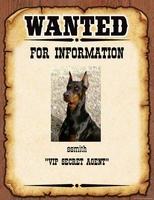Latest topics
Definition of Safe Keeping Receipt
4 posters
Page 1 of 1
 Definition of Safe Keeping Receipt
Definition of Safe Keeping Receipt
Definition of Safe Keeping Receipt: the storage of assets or other items of value in a protected area
Safekeeping Receipts
Safe Keeping Receipt's, or SKR's, are bank instruments that are on the rise as collateral for alternative financing. A SKR is a financial instrument that is issued by a safe keeping facility, bank or storage house. In storage, assets or other valuables are in a safe, secured and protected area. The issuer of the SKR takes the responsibility of being the legally responsible custodian. Check with your institution or safe keeping storage facility as some require fees for these services.
Examples of asset skr's that can be monetized:
• Fur SKR
• Collectible Art SKR
• Gold SKR
• Above Ground Assets SKR
• Commercial Property SKR
• Antiques SKR
• Valuable Documents SKR
• Precious Metals or Gems SKR
The issuer of the SKR is not the legal owner and therefore, must return the asset to the owner upon request. Who can obtain an SKR? Individuals, corporations, companies, organizations and trusts to name a few. The owner of an SKR may monetize this instrument much like an SBLC, LC, Bond or BG and use these funds as an alternative funding source for projects. Most issued SKR are capable of SWIFT transfers however, some may require an additional MT 760 simultaneous to the transfer of funds in the transaction.
Monetizing and SKR is the process of converting the financial instrument into a legal tender transaction. Depending upon the monetizing bank, certain additional conditions may apply. For instance, is the asset free and clear, meaning; is the title free and clear listed on the SKR? Aside from the validity of the SKR, free title is the single most important aspect of monetizing. The next important aspect is the capability of a SWIFT MT 760. Once monetized usually for a term of 1 year and 1 day unless otherwise agreed upon, the safe keeping receipt is then completed to the originating issuer.
With these very crucial points in place, monetizing your safe keeping receipt can be a safe transaction because in most circumstances, you don't move your asset or give up control. Any fees associated with monetizing your SKR should be paid out of proceeds and not upfront. For many reasons, you should never make arrangement to SWIFT or transfer your SKR to any one or company without first having a contract in place or knowing the company you are dealing with. Monetizing your SKR can be a solution to alternative conventional financing.
Safekeeping Certificate
Depositary receipts are a common example of safekeeping certificates. These documents often represent ownership of securities issued and traded outside the United States. Depositary receipts can be bought and sold like stocks and can help investors diversify their holdings.
Other methods for investing internationally include purchasing U.S.-traded international stocks, purchasing stock in U.S.-based multinational corporations, and investing in international index funds and foreign country mutual funds through U.S. brokerages. When assets are placed with a broker, a safekeeping certificate is issued.
ADR, IDR, GDR
An American Depositary Receipt (abbreviated ADR) represents ownership in the shares of a non-U.S. company that trades in U.S. financial markets. The stock of many non-US companies trade on US stock exchanges through the use of ADRs. ADRs enable U.S. investors to buy shares in foreign companies without the hazards or inconveniences of cross-border & cross-currency transactions. ADRs carry prices in US dollars, pay dividends in US dollars, and can be traded like the shares of US-based companies.
Each ADR is issued by a U.S. depository bank and can represent a fraction of a share, a single share, or multiple shares of the foreign stock. An owner of an ADR has the right to obtain the foreign stock it represents, but US investors usually find it more convenient simply to own the ADR. The price of an ADR often tracks the price of the foreign stock in its home market, adjusted for the ratio of ADRs to foreign company shares. In the case of companies incorporated in the United Kingdom, creation of ADRs attracts a 1.5% stamp duty reserve tax (SDRT) charge by the UK government.
Depositary banks have various responsibilities to an ADR shareholder and to the non-US company the ADR represents. The first ADR was introduced by JPMorgan in 1927, for the British retailer Selfridges. There are currently four major commercial banks that provide depositary bank services - JPMorgan, Citibank, Deutsche Bank and the Bank of New York Mellon.
Individual shares of a foreign corporation represented by an ADR are called American Depositary Shares (ADS).
International Depository Receipt - IDR
An IDR is the non-U.S. equivalent of an American Depositary Receipt (ADR).
Global Depositary Receipt - GDR
1. A bank certificate issued in more than one country for shares in a foreign company. The shares are held by a foreign branch of an international bank. The shares trade as domestic shares, but are offered for sale globally through the various bank branches.
2. A financial instrument used by private markets to raise capital denominated in either U.S. dollars or euros.
Investopedia explains Global Depositary Receipt - GDR
1. A GDR is very similar to an American Depositary Receipt.
2. These instruments are called EDRs when private markets are attempting to obtain euro
http://www.interbankbrokers.com/skr.html
Safe Keeping Receipt
Safe Keeping Receipt or SKR, or Safekeeping, is where an asset owner elects to place that asset in the care of an Agent, usually a Bank or a Financial Institution and receives an acknowledgement from the Bank as to their “Safekeeping” of that asset. The asset owner may elect to have such an acknowledgement sent to a third party. A fee may be required for these services.
Definition of Safe Keeping Receipt: the storage of assets or other items of value in a protected area.
Individuals may use self-directed methods of safekeeping or the services of a bank or brokerage firm. Financial institutions are custodians and are therefore legally responsible for the items in safekeeping.
The various assets that can be held in such arrangements range from share, stock or bond holdings to Real Estate Titles, Precious Metals among others. The owner of an SKR may monetize this instrument much like an SBLC, LC, Bond or BG and use these funds as an alternative funding source for projects. Our SKR’s are capable of SWIFT transfers.
Individuals who place an asset in safekeeping are also issued a safekeeping receipt. These receipts indicate that the asset of the individual does not become an asset of the institution and that the asset may be returned to the individual upon request. A fee may be required for these services.
CUSIP and ISIN numbers, can, in some instance, be positioned to SKRs. However the process is quite tricky and not all would qualify.
http://www.isin.net/safe-keeping-receipt/
Safekeeping Receipts
Safe Keeping Receipt's, or SKR's, are bank instruments that are on the rise as collateral for alternative financing. A SKR is a financial instrument that is issued by a safe keeping facility, bank or storage house. In storage, assets or other valuables are in a safe, secured and protected area. The issuer of the SKR takes the responsibility of being the legally responsible custodian. Check with your institution or safe keeping storage facility as some require fees for these services.
Examples of asset skr's that can be monetized:
• Fur SKR
• Collectible Art SKR
• Gold SKR
• Above Ground Assets SKR
• Commercial Property SKR
• Antiques SKR
• Valuable Documents SKR
• Precious Metals or Gems SKR
The issuer of the SKR is not the legal owner and therefore, must return the asset to the owner upon request. Who can obtain an SKR? Individuals, corporations, companies, organizations and trusts to name a few. The owner of an SKR may monetize this instrument much like an SBLC, LC, Bond or BG and use these funds as an alternative funding source for projects. Most issued SKR are capable of SWIFT transfers however, some may require an additional MT 760 simultaneous to the transfer of funds in the transaction.
Monetizing and SKR is the process of converting the financial instrument into a legal tender transaction. Depending upon the monetizing bank, certain additional conditions may apply. For instance, is the asset free and clear, meaning; is the title free and clear listed on the SKR? Aside from the validity of the SKR, free title is the single most important aspect of monetizing. The next important aspect is the capability of a SWIFT MT 760. Once monetized usually for a term of 1 year and 1 day unless otherwise agreed upon, the safe keeping receipt is then completed to the originating issuer.
With these very crucial points in place, monetizing your safe keeping receipt can be a safe transaction because in most circumstances, you don't move your asset or give up control. Any fees associated with monetizing your SKR should be paid out of proceeds and not upfront. For many reasons, you should never make arrangement to SWIFT or transfer your SKR to any one or company without first having a contract in place or knowing the company you are dealing with. Monetizing your SKR can be a solution to alternative conventional financing.
Safekeeping Certificate
Depositary receipts are a common example of safekeeping certificates. These documents often represent ownership of securities issued and traded outside the United States. Depositary receipts can be bought and sold like stocks and can help investors diversify their holdings.
Other methods for investing internationally include purchasing U.S.-traded international stocks, purchasing stock in U.S.-based multinational corporations, and investing in international index funds and foreign country mutual funds through U.S. brokerages. When assets are placed with a broker, a safekeeping certificate is issued.
ADR, IDR, GDR
An American Depositary Receipt (abbreviated ADR) represents ownership in the shares of a non-U.S. company that trades in U.S. financial markets. The stock of many non-US companies trade on US stock exchanges through the use of ADRs. ADRs enable U.S. investors to buy shares in foreign companies without the hazards or inconveniences of cross-border & cross-currency transactions. ADRs carry prices in US dollars, pay dividends in US dollars, and can be traded like the shares of US-based companies.
Each ADR is issued by a U.S. depository bank and can represent a fraction of a share, a single share, or multiple shares of the foreign stock. An owner of an ADR has the right to obtain the foreign stock it represents, but US investors usually find it more convenient simply to own the ADR. The price of an ADR often tracks the price of the foreign stock in its home market, adjusted for the ratio of ADRs to foreign company shares. In the case of companies incorporated in the United Kingdom, creation of ADRs attracts a 1.5% stamp duty reserve tax (SDRT) charge by the UK government.
Depositary banks have various responsibilities to an ADR shareholder and to the non-US company the ADR represents. The first ADR was introduced by JPMorgan in 1927, for the British retailer Selfridges. There are currently four major commercial banks that provide depositary bank services - JPMorgan, Citibank, Deutsche Bank and the Bank of New York Mellon.
Individual shares of a foreign corporation represented by an ADR are called American Depositary Shares (ADS).
International Depository Receipt - IDR
An IDR is the non-U.S. equivalent of an American Depositary Receipt (ADR).
Global Depositary Receipt - GDR
1. A bank certificate issued in more than one country for shares in a foreign company. The shares are held by a foreign branch of an international bank. The shares trade as domestic shares, but are offered for sale globally through the various bank branches.
2. A financial instrument used by private markets to raise capital denominated in either U.S. dollars or euros.
Investopedia explains Global Depositary Receipt - GDR
1. A GDR is very similar to an American Depositary Receipt.
2. These instruments are called EDRs when private markets are attempting to obtain euro
http://www.interbankbrokers.com/skr.html
Safe Keeping Receipt
Safe Keeping Receipt or SKR, or Safekeeping, is where an asset owner elects to place that asset in the care of an Agent, usually a Bank or a Financial Institution and receives an acknowledgement from the Bank as to their “Safekeeping” of that asset. The asset owner may elect to have such an acknowledgement sent to a third party. A fee may be required for these services.
Definition of Safe Keeping Receipt: the storage of assets or other items of value in a protected area.
Individuals may use self-directed methods of safekeeping or the services of a bank or brokerage firm. Financial institutions are custodians and are therefore legally responsible for the items in safekeeping.
The various assets that can be held in such arrangements range from share, stock or bond holdings to Real Estate Titles, Precious Metals among others. The owner of an SKR may monetize this instrument much like an SBLC, LC, Bond or BG and use these funds as an alternative funding source for projects. Our SKR’s are capable of SWIFT transfers.
Individuals who place an asset in safekeeping are also issued a safekeeping receipt. These receipts indicate that the asset of the individual does not become an asset of the institution and that the asset may be returned to the individual upon request. A fee may be required for these services.
CUSIP and ISIN numbers, can, in some instance, be positioned to SKRs. However the process is quite tricky and not all would qualify.
http://www.isin.net/safe-keeping-receipt/
*****************
>>>TNTBS's YouTube Channel<<<

Ssmith- GURU HUNTER

- Posts : 20495
Join date : 2012-04-10
 Re: Definition of Safe Keeping Receipt
Re: Definition of Safe Keeping Receipt
If my paymaster of our group only gave me a receipt but no serial numbers or pictures front and back ???? Actually it is my mothers group and she knows this person and is in a very small group with her from her church . I was very alarmed to find out she doesn’t have the proper info and because of NDA signed how can I help her? She purchased 3 did times and the last time she purchased equal amounts dinar for my brother and sister and myself. She was instructed by her paymaster to not put in a separate trust but she could leave it in group so we would not have to all do deprecate exchanges . I am freaking out because even though she knows her it is not like she sent it off in the mail but she doesn’t have her currency it probably has already been sent to paymasters paymaster . The receipt does have the highest paymasters name on it. I know this is awful she is trying to reach her but has to wait today for an appt. I don’t think it is malicious but HOW COULD A PAYMASTER NOT KNOW LEGALLY THAT WOULD BE THE RIGHT THING TO DO ??? She isn’t an attorney . Can anybody please help me I am in a panic
NeonDaizy- New Member

- Posts : 1
Join date : 2019-10-18
 Re: Definition of Safe Keeping Receipt
Re: Definition of Safe Keeping Receipt
NeonDaizy Welcome to DinarDaily!
Request your currencies back.
The NDA is bogus, but if you can't get them to cooperate, then let them know that they will be reported to the authorities.
NDA's used in these scams are to make you keep quiet and usually have some threat to make you comply. It's a scare tactic so that you don't alert the authorities of their activities or ask others if what they are doing is legitimate.
Maybe you need to have a group meeting, outside of these "Paymasters" and associates, and discuss who these folks are and why their paperwork isn't official?
The issuer of the SKR is not the legal owner and therefore, must return the asset to the owner upon request.
Request your currencies back.
The NDA is bogus, but if you can't get them to cooperate, then let them know that they will be reported to the authorities.
NDA's used in these scams are to make you keep quiet and usually have some threat to make you comply. It's a scare tactic so that you don't alert the authorities of their activities or ask others if what they are doing is legitimate.
Maybe you need to have a group meeting, outside of these "Paymasters" and associates, and discuss who these folks are and why their paperwork isn't official?
*****************

>>>TNTBS's YouTube Channel<<<

RamblerNash- GURU HUNTER

- Posts : 24270
Join date : 2015-02-19

Ponee- Admin

- Posts : 38267
Join date : 2011-08-09
Page 1 of 1
Permissions in this forum:
You cannot reply to topics in this forum

» Dave Schmidt - Zim Notes for Purchase (NOT PHYSICAL NOTES)
» Russia aren't taking any prisoners
» Deadly stampede could affect Iraq’s World Cup hopes 1/19/23
» ZIGPLACE
» CBD Vape Cartridges
» Classic Tony is back
» THE MUSINGS OF A MADMAN
» Minister of Transport: We do not have authority over any airport in Iraq
» Did Okie Die?
» Hello all, I’m new
» The Renfrows: Prophets for Profits, Happy Anniversary!
» What Happens when Cancer is treated with Cannabis? VIDEO
» An Awesome talk between Tucker and Russell Brand
» Trafficking in children
» The second American Revolution has begun, God Bless Texas
» The Global Currency Reset Evolution Event Will Begin With Gold, Zimbabwe ZWR Old Bank Notes
» Tucker talking Canada
» Almost to the end The goodguys are winning
» Dinar Daily Facebook Page